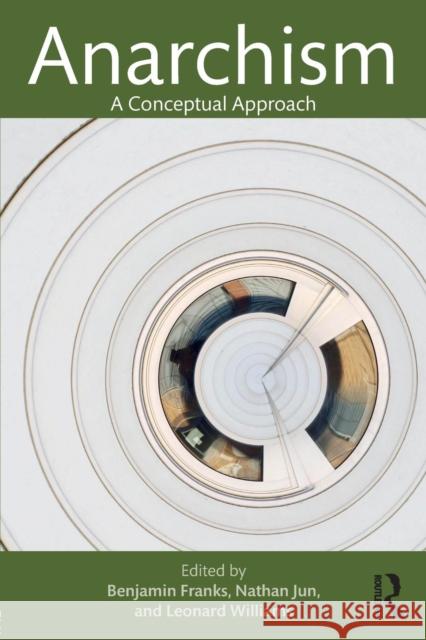Anarchism: A Conceptual Approach » książka
Anarchism: A Conceptual Approach
ISBN-13: 9781138925663 / Angielski / Miękka / 2018 / 242 str.
Anarchism: A Conceptual Approach
ISBN-13: 9781138925663 / Angielski / Miękka / 2018 / 242 str.
(netto: 193,87 VAT: 5%)
Najniższa cena z 30 dni: 186,33
ok. 16-18 dni roboczych.
Darmowa dostawa!
Rather than attempt to formulate a unitary definition of anarchism as an ideology or political theory, this book employs a conceptual-morphological analysis which identifies the core, adjacent, and peripheral concepts of anarchism. Core concepts are the enduring and indispensable ones; they are the concepts that provide an ideology with its essential identity, with the views that separate it from other perspectives. Adjacent concepts provide additional nuance and anchoring for some of the core concepts; they help give a bit of specificity and context for core concepts. Peripheral concepts are those that provide an ideology with the flexibility it needs to adapt to changing circumstances; they are tied to particular times and places, to the concerns of the moment. In the context of this structure, various kinds of relationships among an ideology's concepts are possible. Noteworthy relationships include: (1) proximity--the ability of concepts to define each other; (2) priority--core versus periphery; (3) permeability--the extent to which ideologies intersect and overlap; and (4) proportionality--the relative space or attention to particular issues given by the ideology. With anti-statist attitudes--attitudes that have long been central to the anarchist tradition--becoming prominent on the economic and political right, anarchists seeking to sharpen their message and identity are struggling to determine what is central and unique to their ideas and actions. A conceptual morphology that is sensitive to both academic and practical concerns would be of significant value to theorists and activists alike.











